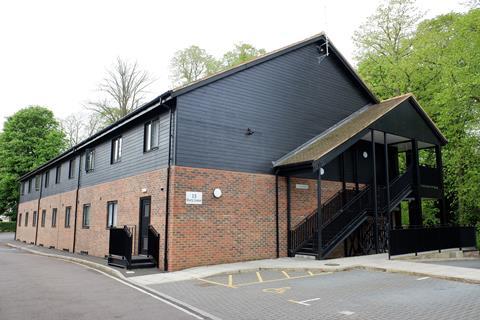Housing secretary labels latest government figures ’national scandal’
The latest quarterly homelessness statistics reveal that, as of 31 March 2024, 151,630 children in England are living in temporary accommodation.

This marks a 14.7% rise in the number of households with children in temporary accommodation from 31 March last year to 74,530 households as of 31 March 2024.
Commenting on the figures, the deputy prime minister and housing secretary, Angela Rayner, said: “this is nothing short of a national scandal.”
The number of households living in a B&B with dependent children increased by 44.2% to 5,550 households compared to 31 March 2023.
Of the households living in a B&B with children, 58% (3,250 households) had been living in a B&B for more than the statutory limit of six weeks.
The number of single households living in temporary accommodation increased by 8.5% to 42,920 in the year to 31 March 2024.
By the end of March 2024, the total number of households living in temporary accommodation rose to 117,450, representing a 12.3% increase from 31 March 2023.
>> See also: We are working to end homelessness – but it requires a united effort
>> See also: Temporary accommodation costs could see Newham Council in need of government bail-out
In the capital, the London Borough of Newham reported the highest rate of households in temporary accommodation, with 53.1 per 1,000 households.
Earlier this month, Newham Council reported a £22.2m shortfall in its budget, citing the spiralling costs of homelessness. The local authority said that despite allocating an additional £18.5m to the budget for temporary accommodation, it is facing costs of up to £40m in this area.
Outside of London, Slough Borough Council had the highest rate, with 18.2 per 1,000 households.
Rayner added: “We are facing the most acute housing crisis in living memory and homelessness remains at record levels.”
She said that “urgent action must be taken to fix this. That’s why we are working across government and with local leaders to develop a long-term strategy to end homelessness for good.”
Rayner said homelessness prevention is part of government’s the plan to address the issue: “Work is already under way to stop people from becoming homeless in the first place.
“This includes delivering the biggest increase in social and affordable homebuilding in a generation, abolishing Section 21 ‘no fault’ evictions and a multimillion-pound package to provide homes for families most at risk of homelessness.”










No comments yet